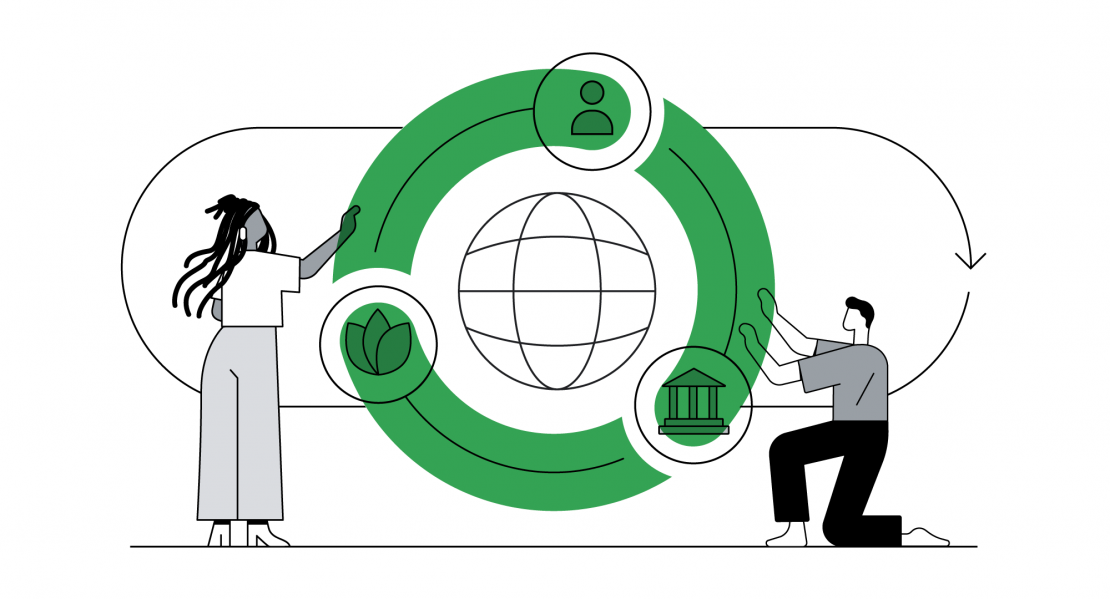
ESG is not the same as "Sustainability" or "Impact." So don't use these concepts as if they were the same because you may be taking wrong decisions.
This is one of the conclusions of Van Zanten and Huij, in a freshly published article, where the authors study the effectiveness of ESG ratings vs. the SDG Score to measure how companies contribute to the world's sustainability ambitions.
In fact, it is commonly known that investors are increasingly engaging with sustainability and that sustainable investing is becoming mainstream. This is happening as sustainable development has been recognized as an ally of profits and value creation for businesses and society. Accordingly, for many investors, or even sustainability curious, ESG ratings are the main instrument to assess whether a company is sustainable or not. However, the authors of the referred article demystify the reliability of these ratings, showing that:
- ESG ratings fail to capture companies' sustainability impacts and are not adequate to measure corporate sustainability performance;
- If investors or sustainability practitioners want to access companies' sustainability performance, SDG Score metrics are much more informative and reliable.
Really? What is ESG, then?
ESG assessments measure companies' exposure to (E)nvironment, (S)ocial and (G)overnance risks, and their repercussions on financial performance. They are not measuring companies' positive or negative impact on the world.
This has strong repercussions on companies that, instead of investing in a sustainable future for their operations, spend their money on reporting and managing risks that are not value driven. This way, we cannot expect strategies incorporating ESG to support sustainable development. They are risk-mitigating strategies with a final aim: to generate better financial performance (not a better world).
Moreover, the authors also focus on two other important points. ESG ratings are dispersed and not normalized, which generates what they call an "aggregate confusion". Additionally, ESG ratings are biased to rate better companies with more resources and increased capabilities to report and disclose ESG metrics.
Based on these findings, Van Zanten and Huij suggest (instead) the use of an SDG Score that measures companies' contributions to the SDGs, according to 7 positive and negative levels of impact. As the SDGs are the only universal and positive agenda for the world prosperity, they unify the measurement dispersion ESG problem around one single frame of reference. Moreover, companies' contributions to these goals are direct contributions to sustainable development and a better world – not risk mitigation strategies.
Conclusions
This study goes further on testing the performance of ESG ratings (Sustainalytics, Refinitiv ESG rating, S&P and MSCI) and the SDG score. They conclude that SDG Score performs better in all tests, showing that:
- SDG Score captures better investors' revealed sustainability preferences, excluding from the investment portfolio companies that are not sustainable for the world, and including positive impacting companies
- SDG Score aligns better with the EU taxonomy
- SDG Score contributes better to climate change ambitions
Therefore, if you were surprised that highly polluting or health-damaging companies were at the top of ESG ratings, you are not anymore. You cannot expect ESG strategies to be aligned with sustainable strategies, because this is not really what they aim for. If we want to be serious about corporate societal contributions, there is only one universal and agreed agenda to look for: the SDGs!
Therefore, metrics to capture companies' positive or negative impacts on the SDGs (like the SDG Score presented) are what we really need to promote sustainable development.
(By the way, don't lose our next event on this topic with one of the most technological Portuguese companies sharing "How they went through the SDGs way, implementing the Global Goals in their core business").
Have a great and impactful week!
Filipa Pires de Almeida
Deputy Director
Center for Responsible Business & Leadership
This article refers to edition #155 of the "Have a Great and Impactful Week" Newsletter and covers SDGs 8, 9, 12 and 17. Subscribe here to receive the weekly newsletter!